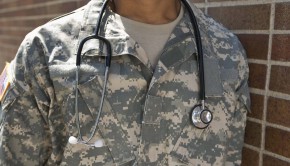Getting More From Government Health Investment
The government has encouraged hospitals and physicians to adopt electronic medical records since passing the HITech Act in 2009, but encouraging them to share that medical data to make treatment more efficient has been more difficult despite a federal investment of nearly $30 billion.
Sharing data between doctors and hospitals can track a patient’s condition, ease decisions on how to choose treatment and avoid costs from unnecessary tests, a panel of federal health policy experts explained on Tuesday during the U.S. News Hospital of Tomorrow Conference.
Information sharing takes many forms depending on who controls the data and how it needs to be processed, so interoperability “is not a single thing that just happens” said Steven Posnack, director of the Office of Standards and Technology at the Department of Health and Human Services.
Andrew Truscott, managing director of Accenture Federal, echoed that “one size doesn’t really fit all” when it comes to data sharing plans. He explained that the process of integrating health networks would be easier if it were “crystal clear who owns the data.”
Physicians have a responsibility to use data for efficient treatment while also ensuring a patient’s data is kept secure, he said, adding that interoperability of medical records will be come about through “patients demanding change and physicians who are willing to change.”
“If patients don’t trust what we are doing with their data, we are on a high road to nowhere,” Truscott said.
Full article by Tom Risen, U.S. News & World Report
































































































































































